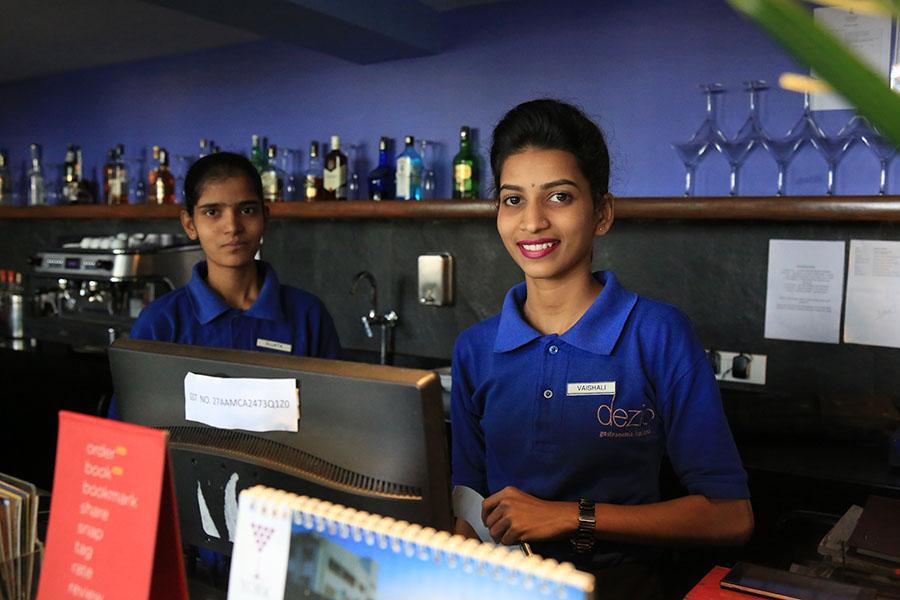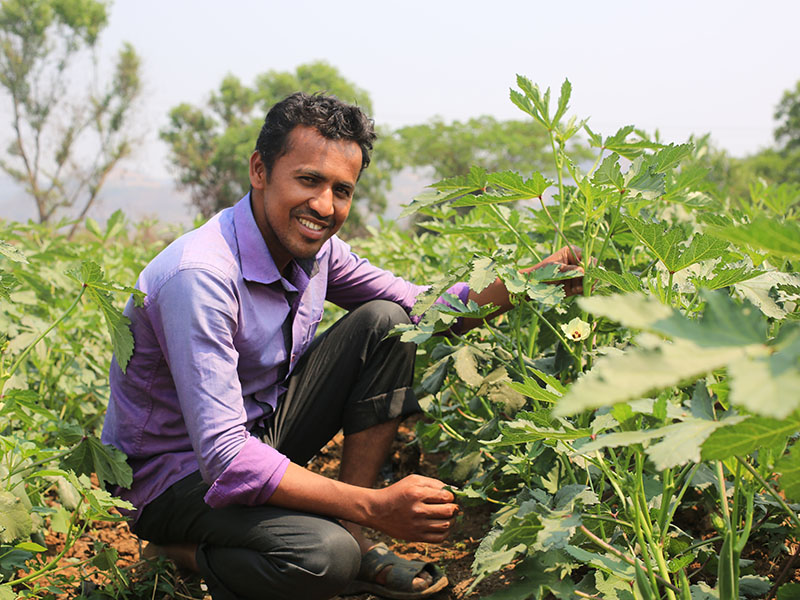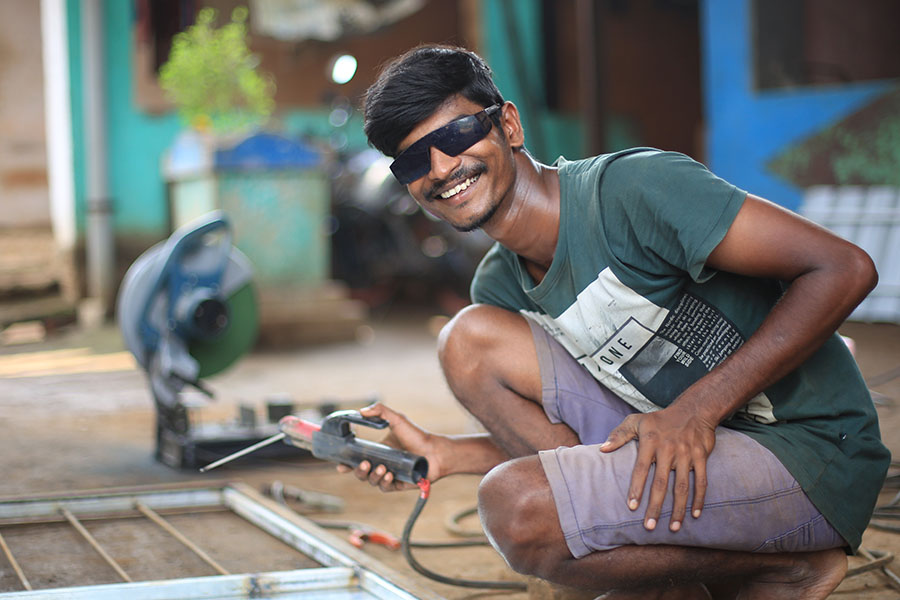Rural youth: The demographic dividend we must invest in
There is a wealth of human potential in our villages that doesn't shine through. Governments, corporates, civil institutions, and communities need to join forces to help build this youth
A few years ago, Vaishali Shinde was a shy student in Raigad, weighing her options for the future and wondering how she could help her father support their family of five. On the suggestion of a friend, Vaishali took up a skilling course in hospitality at an institute in Mangaon. Three months into the completion of the course, she landed a job at an eatery in Pune, which allowed her to not only support herself but also her siblings' education.
"I had never eaten anything apart from Maharashtrian food, but here I am in charge of the Italian menu,” she tells us with a flushed smile. Vaishali is one among many young boys and girls empowered by skilling programs in India that allow them to dream and find pathways to meet their dreams.
Currently, 40 percent of India's population is below the age of 25 while less than 20 percent are above the age of 65, according to Pew Research Centre. This is a great opportunity to forge not just an economically strong India but also a more equitable, socially just India.
Also Read- Why understanding mental poverty is crucial to transforming rural lives
Close to 68 percent of the 'youth' in our country reside in our villages per the Central Statistics Office. Optimising this demographic therefore must start with empowering the rural youth. How do we do that?
Build aspiration
One of the biggest learnings of our journey in the social sector is that poverty among underserved communities is deep-rooted. It goes beyond material inadequacy and is also 'mental'. Generational poverty renders communities incapable of dreaming of a better, happier future. Building aspiration, therefore, is key to creating an ambitious youth that can break away from the vicious cycle. Exposure, opportunity, training, mentoring, and instilling a can-do attitude are crucial to building aspiration.
Curtail forced migration
Vaishali’s story fills us with joy, however, a vast majority of young men and women are forced to migrate to the cities and oftentimes find low-paying, menial labour in the metros due to the lack of opportunities in their hometown. To stop this forced migration, we need to ensure that the villages can provide opportunities for entrepreneurship, and employment for rural youth. Meet a young man, Sanjay Dhasade from Mangaon, Raigad whom I met a few years ago. Sanjeev quit his job in Mumbai to pursue watermelon farming on his family farm. Equipped with some smart tech but more importantly the confidence to do more, he set out to create a farm that now not only generates more income than his city job but also serves as an employer and inspiration to other youth in the hamlet.
Incentivise farming
According to an input survey by the Union Ministry of Agriculture and Farmers’ Welfare, the average age of an Indian farmer in 2016 was 50.1 years—a paradox given the average age of our rural population. To make the agricultural landscape reflect its young demographic, we must make agriculture ‘cool’ again. One way to do this is by farmers' organisations working closely with the buzzing agritech startups. The Indian agritech sector is believed to have received $1 billion in funding from 2017 to 2020, according to Bain and Company. Already governments and startups are developing AI to make farming more lucrative by providing AI-based technology to access online marketspaces, forecast weather patterns, understand soil health, and more. DeHaat, which identifies as a full-stack agriculture platform provider and Resha Mandi working towards a farm-to-fashion platform, are good examples of how startups have the potential to infuse new life into an existing agricultural framework.
Enable skilling programs
The government’s Skill India Mission or Pradhan Mantri Kaushal Vikas Yojana is a great initiative in this direction. Under this program, youth are trained in skilled jobs such as masonry, electricals, plumbing, carpentry, and more– a vocation that allows them to seek opportunities and make a living by applying a newly learned skill in their environment. Many organisations such as Tata Strive, ICICI Foundation, Ambuja Cement Foundation, Udyogwardhini, and Learnet are making a noteworthy contribution to the movement by partnering with civil institutions that work with the youth at the grassroots.
Strengthen the education system
There is a wealth of human potential in our villages that doesn't shine through because many students simply drop out of school due to a lack of funds, overbearing familial responsibilities, and more. Working on a quality and accessible education system, therefore, is invaluable. This must include facilities in schools, including especially water and sanitation, scholarship programs, and above all the community must learn to see education as a valuable investment.
Also Read- How building school toilets can keep our girls in school
Vivekananda described the value of a nation's young population when he said, "A brave, frank, clean-hearted and aspiring youth is the only foundation on which the future nation can be built." It is our collective responsibility to help build this youth, no one can do it alone. We need governments, corporates, civil institutions, and communities to join forces for this dream to come true.
I once met a young girl named Sejal from Mangaon, who was very passionate about sustainable architecture, and fortunately for her, she bagged a scholarship for this. And while still in college, she helped build a bus stop out of discarded rubber tyres and bottles in Ratnagiri.
Imagine how many more Sejals there are, waiting to serve their communities and our country if given the right opportunity.
The writer is the co-founder of the Swades Foundation & works full-time as its Managing Trustee & Director.
The thoughts and opinions shared here are of the author.
Check out our end of season subscription discounts with a Moneycontrol pro subscription absolutely free. Use code EOSO2021. Click here for details.



